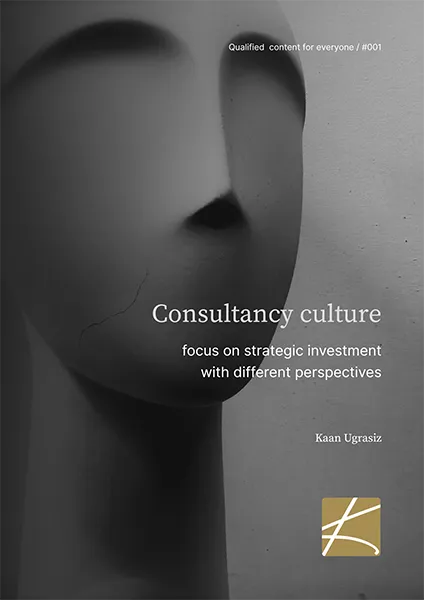Using consulting services clearly provides a critical advantage for companies of all sizes in critical and risky areas such as growth, transformation, and new market entry. However, a common misconception is that consulting is an expensive purchase.
Whether it’s a small-scale digital transformation project or a larger one, all types of consulting require expertise, and expertise is gained through experience. Therefore, consulting fees are determined based on direct knowledge, industry experience, and the ability to solve problems in a timely and efficient manner.
Obtaining expert support from external sources for special projects and strategic decisions is critical to resolving issues faced by the corporate structure, resulting in a high added value for the resulting work. Because the consultant’s knowledge, experience, and expertise play a significant role in achieving this, the consulting fee is determined by the value the work achieves for the corporate structure.
The level of staff, the number of people, and the type of consulting provided are all important factors influencing consulting fees. For example, it should not be expected that the management consultancy provided to the CEO will be priced the same as the business consultancy provided to mid-level managers. Another similar example is that you should not expect the rates for digital transformation consultancy to be the same as those for software consultancy provided to a large-scale application development team.

What are the factors affecting consultancy fees?
There are many different criteria for determining consulting fees.
The required expertise, the scope of the project for which the expertise will be provided, the dynamics of the industry, and the consultant’s brand value are all direct determinants of these fees.
I can simply list the pricing policies based on the length of time the consultancy is provided, as well as hourly/daily, project-based, results-based, and subscription-based rates.
It’s not surprising that experienced experts in their field charge more based on their knowledge. Especially if you’re working in a niche area and the risks involved are high, a reputable, expert consultant is the key to achieving a successful outcome.
Long-term projects, the specialized infrastructure required to provide consulting services to the diverse needs of many people simultaneously, and the need for ongoing work can directly or indirectly lead to high consulting fees.
Fees for consulting services in highly regulated areas like management, law, and finance differ from those in technical fields like software and technology.
There is no set fee for consulting services. Fees vary widely depending on the needs of the corporate structure. It’s important to remember that the budget allocated for consulting offers the potential to yield higher returns with the right strategy.
Plan your consulting budget effectively:
- Clearly define the project scope and objectives.
- Examine the consultant’s expertise, past successes, and references.
- Check the transparency of pricing.
- Ask about financing for additional costs.
- Focus on the consultant’s added value to the organization.
Consultancy may seem unnecessary and costly at first glance. However, when you consider the added value provided by the expertise, perspective, and time savings involved, the budget allocated for consulting is actually a wise investment.
For further read…
- Are consultants expensive?
- Management consulting fees: How Bain, BCG, and McKinsey price projects
- How much do business consultants charge: 7 factors affecting consulting fees
- Decoding the mysteries of consulting fees: Finding value amid costs
- Consulting fees decoded: Structuring your path to success

Download e-paper for free: You’re going to find these topics in this document:
- What is consultancy and “not”?
- The foundations of a concultancy culture
- How does consulting affect business culture?
- Approaches to consulting culture
- Why companies avoid seeking consultancy?
- Consultancy as a “comfort zone” threat
- Reducing reluctance and resistance to consulting
- The cost of getting consultancy and hiring a consultant
- What are the factors affecting consultancy fees?
- Reluctance to seek advice in the family biz






